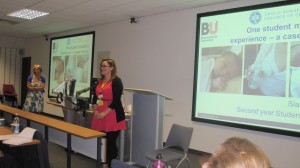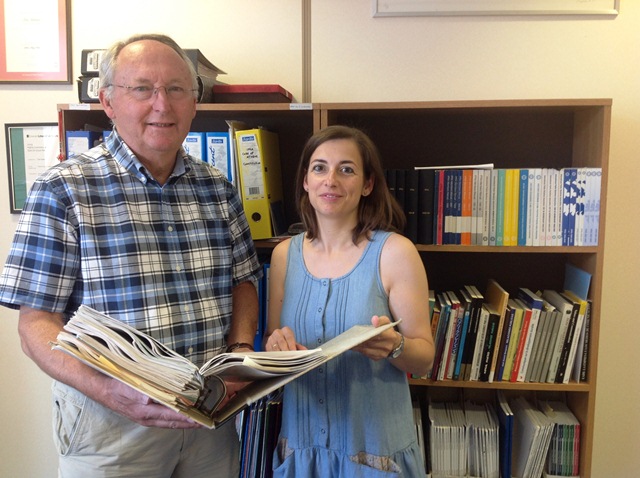Monday
Student loan book sale U-turn
Vince Cable has announced plans to scrap a proposed sale of student loans – worth an estimated £12bn. The reversal could squeeze the number of university places offered to school leavers. The sale was announced originally by the Chancellor with the proceeds funding the early years of the growth in student numbers when the university student cap is lifted in 2015-2016. Now it is unclear how the expansion will be bankrolled with undergraduate recruitment for 2015 to begin in less than two months. The BIS secretary told the Social Liberal Forum that the government was considering the sale of student loans on the basis that it would reduce government debt. Recent evidence suggests this will no longer be the case.
· Student loans sell-off abandonment raises tension in cabinet (Guardian)
· Privatisation of student loan book to be scrapped (Independent)
· Cable ‘scraps’ sale of student loans (THE)
Tuesday
Student Loans
Lots of coverage about the Business, Innovation and Skills Committee’s report warning that the Student Loans system is at ‘tipping point’ and accuses the government of failing to get accurate forecasts on how much of the loans need to be written off. The committee reckons the sale off of the student loan book would raise approximately £2bn at the moment, not £12bn. Incidentally, Downing Street downplayed Vince Cable’s claims the Liberal Democrats were blocking the privatisation of the plan, saying it was “not aware of any change to the policy”.
· Student loan system reaches ‘tipping point’, warn MPs (BBC)
· Student loan system is almost financially unworkable, says MPs (Guardian)
· Aditya Chakrabortty – Student loans: not even Cameron could privatise the unprivatisable (Guardian)
· Leader – The Guardian view on collapsing plans to sell off student debt (Guardian)
· Student loan system ‘needs urgent review’ says MPs (THE)
· Nearly half of students will not pay back government loans warn MPs (Telegraph)
· Student loan system ‘at tipping point’ says MPs: call to overhaul ‘fragile’ regime to prevent ‘black hole’ in funding (Daily Mail)
· Funding for more student places thrown into doubt (FT)
· Student loan write-off losses cause alarm (The Times)
· Billions lost in ‘black hole’ of student loans (Daily Express)
Graduate employment
A summer report published today by the Association of Graduate Recruiters reveals there is a 17 per cent increase in the overall number of graduate vacancies, when comparing 2014 with the last recruitment season. The survey also shows that graduate starting salaries are set to improve, with the median rising £500 from last year to £27,000.
· Graduate vacancies and salaries rise (THE)
· UK graduate jobs ‘recover but posts left unfilled (BBC)
· Jobs vacancies are rising, but graduates lack the right skills (The Times)
Wednesday
Access
A report by the London School of Economics and Political Science suggests that ethnic minority students are less likely than their white British peers to receive offers from UK universities. The only exceptions were mixed white/Asian and Chinese university candidates, who did not have a significantly lower chance of getting an offer.
‘Fewer university offers’ for minority groups’ (BBC News online)
Ethnic minority applicants to university ‘less likely to receive offers’ (THE)
Ethnic minority students get fewer university offers, research shows (Guardian)
Student loans sell-off
Further coverage after Graham Parker, from the Office for Budget Responsibility (OBR), told the Treasury Select Committee that it was a “reasonable assumption” that cancelling the student loan book sell-off would cost the Treasury £12 billion over five years and the move would add to public sector debt. It may also jeopardise Mr Osborne’s plan to remove the cap on student numbers which was due to be funded by the proceeds of the loan book sale.
Scrapping of student loans sale could raise public sector debt (Guardian)
Axing student loan book sell-off leaves £12bn hole (The Times)
Thursday
University Alliance making the case for urgent need for a more sustainable HE funding system
In the Hepi blog, Prof Steve West, Chair of the University Alliance, responds to HEPI’s new report on ‘Only Connect’: Is there still a higher education sector?, written by Prof David Weston. Read it here
The Wonkhe blog was an opportunity to explore the issue in even more depth Read here.
Access
There’s considerable coverage following the publication of OFFA’s access agreements for 2015-2016.
UK universities spending more on outreach and less on bursaries, report shows (Independent)
More universities to charge maximum tuition fees of £9,000 (Telegraph)
Millions spent helping poor students pass (The Times)
Ethnic minorities
Several more pieces on how ethnic minority students are less likely to win a place at university following the publication of research from LSE. The study looked at 50,000 UCAS applications from 2008.
Universities give fewer places to ethnic minorities – still? (Channel 4 news)
Black And Ethnic Minority Students Far Less Likely To Receive Offers, New Study Reveals (Huffington Post)
Ethnic minority students less likely to win a place at university, finds research (The Upcoming)
Friday
Widening Participation
UCAS analysis has shown record numbers of disadvantaged teenagers applied for university allaying fears that higher fees would deter less wealthy candidates. Poorer students apply to university in record numbers (Times)
The recent OFFA report has shown that universities are moving away from bursaries and are diverting money into outreach and employability work. Universities woo poorer students with mentoring not cash (Guardian)
University Funding
A letter calling for government to resist the urge to re-cap student numbers has been published in the Times and the Guardian.
· It is time to think again about how we are funding higher education and student loans (Times)
· Sustainable funding for students (Guardian)
![]() Every BU academic has a Research Professional account which delivers weekly emails detailing funding opportunities in their broad subject area. To really make the most of your Research Professional account, you should tailor it further by establishing additional alerts based on your specific area of expertise.
Every BU academic has a Research Professional account which delivers weekly emails detailing funding opportunities in their broad subject area. To really make the most of your Research Professional account, you should tailor it further by establishing additional alerts based on your specific area of expertise.




















 Nursing Research Impact in Nepal
Nursing Research Impact in Nepal Fourth INRC Symposium: From Clinical Applications to Neuro-Inspired Computation
Fourth INRC Symposium: From Clinical Applications to Neuro-Inspired Computation ESRC Festival of Social Science 2025 – Reflecting back and looking ahead to 2026
ESRC Festival of Social Science 2025 – Reflecting back and looking ahead to 2026 3C Event: Research Culture, Community & Cookies – Tuesday 13 January 10-11am
3C Event: Research Culture, Community & Cookies – Tuesday 13 January 10-11am Dr. Chloe Casey on Sky News
Dr. Chloe Casey on Sky News ECR Funding Open Call: Research Culture & Community Grant – Application Deadline Friday 12 December
ECR Funding Open Call: Research Culture & Community Grant – Application Deadline Friday 12 December MSCA Postdoctoral Fellowships 2025 Call
MSCA Postdoctoral Fellowships 2025 Call ERC Advanced Grant 2025 Webinar
ERC Advanced Grant 2025 Webinar Horizon Europe Work Programme 2025 Published
Horizon Europe Work Programme 2025 Published Update on UKRO services
Update on UKRO services European research project exploring use of ‘virtual twins’ to better manage metabolic associated fatty liver disease
European research project exploring use of ‘virtual twins’ to better manage metabolic associated fatty liver disease